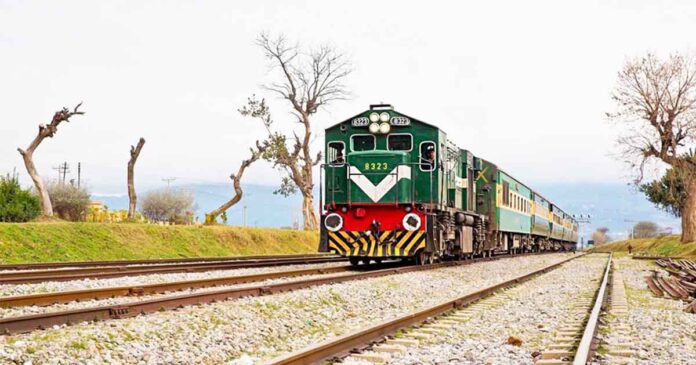Pakistan has secured Chinese approval to proceed with a $2 billion upgrade of the Karachi–Rohri railway line, Railways Minister Hanif Abbasi confirmed this week, Arab News reported.
Minister Abbasi confirmed that the upgrade financing is being led by the Asian Development Bank (ADB), following an agreement with China to form a consortium including ADB and the Asian Infrastructure Investment Bank (AIIB). This project forms part of the $60 billion China-Pakistan Economic Corridor (CPEC), an initiative under President Xi Jinping’s Belt and Road Initiative.
The upgrade is part of the broader $7 billion Main Line-1 (ML-1) project, which aims to revamp Pakistan’s 1,726-kilometer colonial-era railway system from Karachi to Peshawar.
The Karachi–Rohri section is seen as essential to the Reko Diq venture, a joint project between Canada’s Barrick Gold and Pakistan, expected to generate billions of dollars in exports over the coming decades. The railway line, currently operating at speeds of just 40 km/h, will be upgraded to allow for speeds of up to 120 km/h.
The Karachi–Rohri upgrade is seen as crucial for improving Pakistan’s rail transport, particularly in facilitating the movement of copper and gold. Abbasi noted that despite funding from ADB, China would continue to oversee the execution of the project due to its expertise in railway construction.
Abbasi added that Pakistan would seek Chinese approval for each section of the ML-1 project as alternative funding is secured. While the project’s financing terms are still under discussion, the minister assured that the interest rates would remain “minor.”
The project is set to break ground in mid-2026, with ADB’s feasibility studies expected to conclude by December 2023.
Abbasi also announced that the Reko Diq Mining Company (RDMC) had agreed to provide $390 million in bridge financing for the stretch between Rohri and Nokundi in Balochistan, enabling the transport of up to one million tons of copper annually, replacing the need for 28,000 truckloads.
Security concerns in Balochistan, where separatists frequently target infrastructure, remain a challenge. Abbasi assured that enhanced security measures, including the deployment of the Federal Constabulary, would be put in place for the mineral-carrying trains.
In addition to the Karachi–Rohri upgrade, Abbasi revealed plans to restore the Islamabad–Tehran–Istanbul (ITI) freight service in December, which had been suspended in 2019. The service is expected to boost exports, including rice and pink salt, to Europe and Turkey.
Furthermore, Pakistan is advancing the proposed Uzbekistan–Afghanistan–Pakistan (UAP) railway project, valued at $10 billion, which would connect Termez in Uzbekistan to Kabul and Pakistan’s Kurram district, potentially offering access to European and Central Asian markets.




